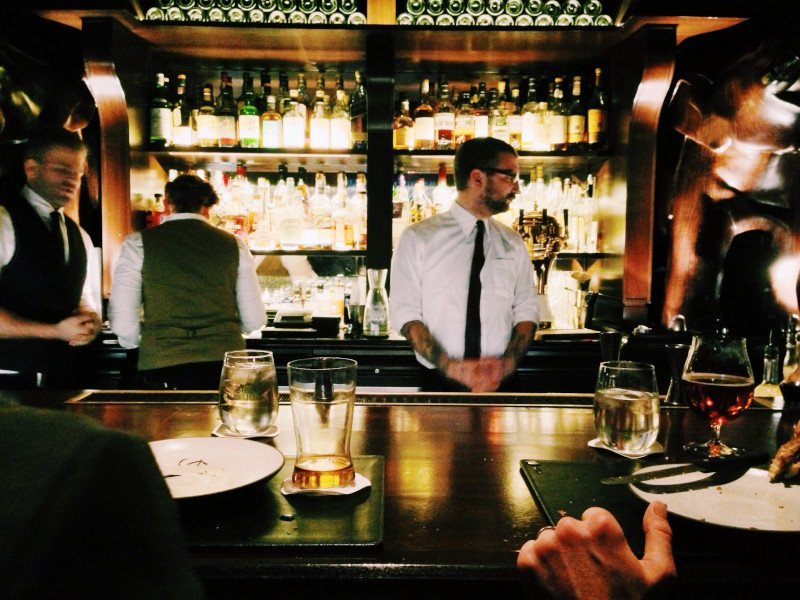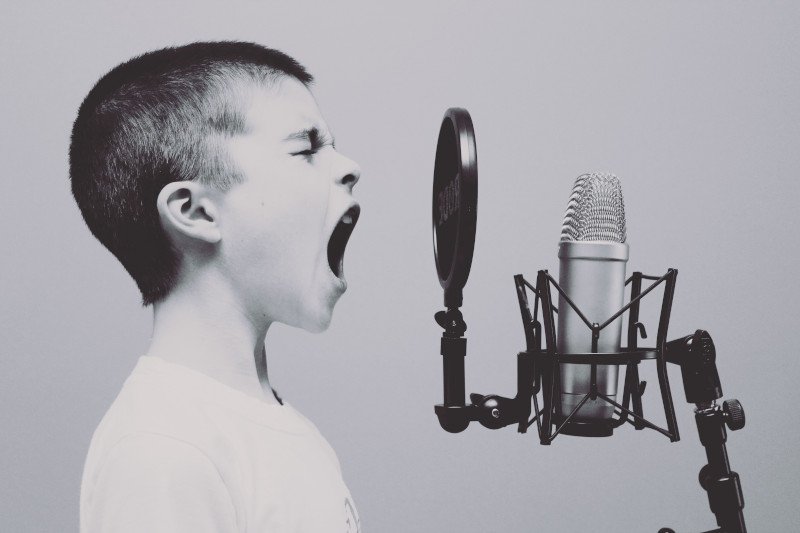I never make my sobriety a topic. Unless people ask when they notice I don’t drink. And since alcohol is so pervasive, the question comes up ever so often. So here is my take on why not to drink alcohol. Along with a bit of personal story to make it more relatable.
I am not moralistic about the topic. It is enjoyable when other people dive into a kind vintage’s layered savoriness because I can relate to their feeling. Drinking alcohol is an individual choice. Mine is to abstain. And if you drink, do so without remorse. Feeling pressure to justify one’s imbibing is but pitiful.
As I write these lines, I have not had any alcohol for a little over 1.5 years. I stopped from one day to the next. Now well into my forties abandoning the booze has given me a significant boost in every area of my life.
What Happens When You Stop Drinking Alcohol
I started to drink alcohol in my teens, as it is common in Western culture. My consumption peaked in my early university days and the last four years before I stopped again. In my thirties, I did not drink any alcohol for about eight years and only started again after returning to the city from a remote life in the Himalayas.
Social drinking wasn’t my thing, nor was I drinking to release stress. It was the rush and the buzz and the experience of accelerated emotions that I was after. Most of the time, I would be writing when getting loaded. In any case, I would remain active when drinking rather than clonking out. In the evenings, alcohol would get me going rather than unwinding.
My favorite drinking occasions were Sunday morning brunches at a 5-Start hotel with a free flow of bubbles. And when traveling. Emirates lounges and business class flights are fantastic to indulge in excessive amounts of good champagne. So are social hours in executive lounges of hotels. And gee, I almost forgot set-menu dinners with wine pairings. Those were the days.

Balance Alcohol Consumption with Nutrition
I never considered myself an alcoholic and always maintained my regular yoga, running, and bodyweight workouts. When drinking alcohol, I also would try to revitalize my body with a healthy diet based on natural food with plenty of greens. And additionally, take minerals, cordyceps, reishi, and turmeric to balance the acidity. As well as lots of lemon juice before sleeping and in the morning.
While I much enjoyed this lifestyle, it is an inebriation, after all. And I was aware of the price I was paying. So I grew increasingly weary of having a habit in my life that cuts a substantial part of my life force. Physically. Emotionally. Financially.
But as it so happens, alcohol begets more alcohol. That is the nature of any addictive drug. So drinking became almost daily, and a good bottle of red wine in the evening the norm when not traveling or out on social occasions. I would hardly ever drink cocktails, though, and not touch hard liquors. I always had too much respect for their liver dissolving capabilities.
And then, one day after an excessive night in a hotel lounge in Korea, my resolve finally became strong enough to stop completely and for good. If you are not physically addicted, it is straightforward to stop. Breaking the habit the first day is tough. The next day though, you will feel almost euphoric when the entrenched mind breaks free from the yoke of intoxication. It is an exciting, uplifting emotion. The body very quickly feels stronger, and sleep becomes sounder, refreshing, and full of dreams.
It becomes hard to resist the lure of the booze again a couple of months later. When you have to come to terms with being an outsider. Then your resolve is being put to the test. And hopefully, you have entirely rationalized how much more you gain by not drinking alcohol.
Alcohol is Everywhere
Asking why not to drink alcohol has a limiting, contrarian, almost antisocial ring to it. Because intoxication is in the vicinity of universal. Alcohol is pervasive in countless social affairs. Nearly every culture on planet earth has alcohol. People imbibe booze at ancestral rituals, religious ceremonies, cultural celebrations. Or whenever people come together for any other reason. Or to make any moment more remarkable.
Alcohol is used to please the gods, soothe the nerves, or loosen the tongue. And there is a cocktail called Casanova because alcohol also has merits increasing the likelihood of intimate encounters.
So Why Not to Drink Alcohol then?
The most obvious answer is because today, alcohol is the most widespread and destructive drug on earth. The National Institute on Alcohol Abuse and Alcoholism (NIAAA) has compiled a comprehensive list of how alcohol affects your body. The AIAA website also provides continuous statistics and downloadable research on alcohol abuse.
There are plenty of lists on the Internet with reasons why to stop drinking alcohol. Reasons for quitting the booze relate to health, personal finance, social relationships, and general level of contentment with one’s life.
Popular items for abstinence include:
- Giving your damaged liver a chance to heal
- Reducing your risk of kidney, liver, heart disease as well as cancer
- Your skin will clean up, and you will look better
- You’ll lose and maintain weight more easily
- Your sleep will become much better
- Your sex life gets better
- No More Hangovers and wasted weekends
- When not relying on alcohol any longer, you can start discovering yourself
- No more silly decisions you are bound to regret
- With successful abstinence, your confidence will grow
- You’ll become healthier in all areas of your life
- You will start saving substantial amounts of money
- You will have much more free time at your disposal
This list is compelling, yet the majority of people continue to drink alcohol.
“If alcohol were discovered today, would it be legal?” asks Professor David Nutt of Cambridge University in his book Drugs Without the Hot Air – Minimising the harms of legal and illegal drugs. The likely answer is probably not.
So Why to Drink Alcohol Anyway?
First, because alcohol is fun and addictive. Second, because cultural sublimation works wonders in belittling this depressant drug.
Alcohol is the consensus drug of the capitalist system. Booze is deeply entwined in the social and economic fabric of the modern world.
It is the agreed rewards-code for success within the system. After hard labor, reward yourself with a cold beer. The winning formula one driver sprays the applauding crowd with a supersized champagne bottle of the most elegant vintage. In football, the showering is more likely coming from large bottles of beer.
If you fly with Emirates economy class, sparkling alcoholic beverages carry a substantial price tag. Fly business class, expect a free flow of Veuve Cliquot or Moet Chandon in narrow flute glasses. Fly First class and Dom Perignon will be in your proper tulip champagne glass.
One may devise a complete anthropological status map based on alcohol consumption.

Filling the Void with Alcohol
In traditional societies, psychoactive substances were mainly used for rites of passage or to reach expansive, transitory states of mind. In turn, our complex, modern society appears to be using alcohol, among other drugs, as a placeholder for unfulfilled needs and a mediator for realities we are not yet ready to face.
In “The Power of Now,” Eckhart Tolle writes, “If it weren’t for alcohol, tranquilizers, antidepressants, as well as illegal drugs, which are all consumed in vast quantities, the insanity of the human mind would become even more glaringly obvious than it is already. I believe that, if deprived of their drugs, a large part of the population would become a danger to themselves and others.”
And Viktor Frankl says in “Man’s Search for Meaning” – “I am reminded of the findings presented by Annemarie von Forstmeyer who noted that, as evidenced by tests and statistics, 90 percent of the alcoholics she studied had suffered from an abysmal feeling of meaninglessness. Of the drug addicts studied by Stanley Krippner, 100 percent believed that “things seemed meaningless.”
What Is behind the Brain Fog of Alcohol?
Everybody’s relationship to and history with alcohol and other drugs, for that matter, is individual.
A starting point to quit booze or moderate drinking behavior is to understand one’s addictive behavior and how it has affected your life so far. Are you willing to pay that price?
As with most addictions, they are not something to be tackled head-on and substantiated as such. Instead, replace detrimental boozing with something more positive. The critical question is, how do you want to live? As for myself, I felt the strong urge to simplify my life and get rid of anything that keeps me from being the best person I can be. I did not like myself sloshed and with hangovers in the morning. Life is so much easier without alcohol.
Marketing for alcoholic beverages invokes mainly two motives: freedom and status.
It is hard to overlook the tragic irony here: addiction-inducing alcohol is the very antithesis of freedom. Instead of providing independence, booze glues you even tighter to the dominant capitalist system. Look at all these people who get drunk after work on Friday and Saturday evenings to have the rest of the weekend recover from their excesses and then start slaving away again on Monday mornings.
And as for status, how can you seriously intend to build status with something that weakens you?
Why Not Just Drink Alcohol in Moderation?
If alcohol is fun and allows you to join in with other people, why do you have to be so radical as not to drink at all?
Because even small amounts of alcohol are detrimental and disturb your natural stream of consciousness. In fact, you only realize how much even tiny quantities of booze affect you only after you have abstained for months. I daresay that many people have no idea what complete sobriety truly feels like.
After an excessive sitting of drinking, it is days after your mind is clear again. Most of us aren’t even aware that we are so used to having alcohol in our lives.
It is the nature of addictions that, after some time, we don’t consume to achieve a pleasant state. We consume to avoid the unpleasant state we experience from withdrawal.
The time for alcohol in my life is over. I don’t want the mental loops anymore that even the smallest amounts of alcohol cause. I want it out of my life for good.
Life Without Alcohol

Ultimately, whether to consume alcohol or not comes down to how you wish to progress in your life and deal with reality.
Living without alcohol is living without numbing any troubles that you experience on your path. Being able to face these troubles, to withstand the pain that being alive will unavoidably inflict upon you at times, is growing up.
How to deal with your emotions? Any emotion prompts action, especially the unpleasant ones. Having a drink is avoiding that prompt and delaying. But the problem that is causing the negative emotion will never go away unless you act on it in one way or another.
The existentialist philosopher Soren Kierkegaard said, “Personality is only ripe when a man (and woman!) has made the truth his own”.
Abstaining from alcohol is a substantial contribution always to face the truth in your life. Choosing to live in reality is why not to drink alcohol. Fully committing to what is.
Choose the pain and work through it because one day, you don’t have that choice anymore. Or to quote Kierkegaard one more time, “Just as gold is purified in the fire, so the soul is purified in sufferings.”





